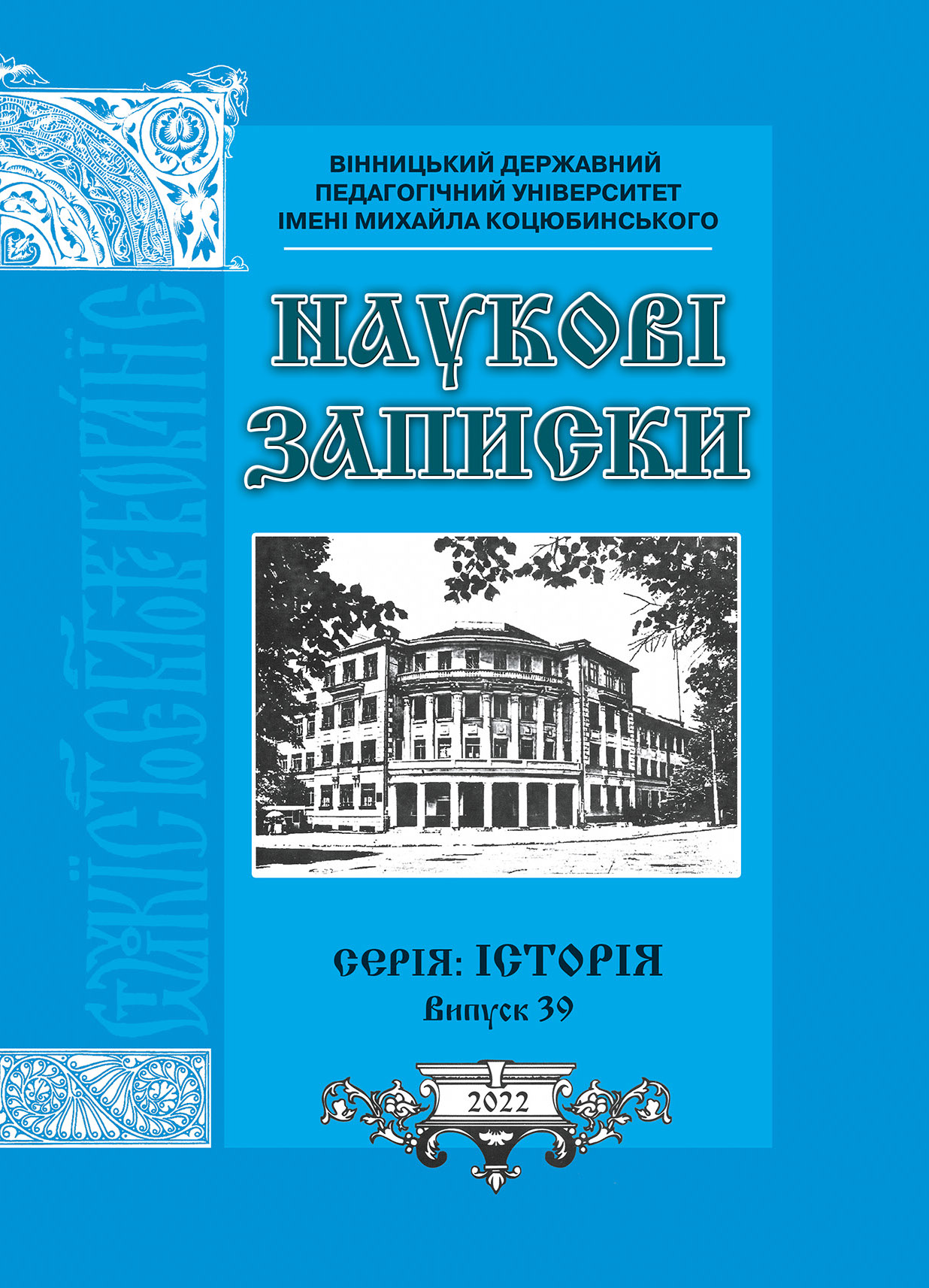Abstract
Purpose of the article. A significant number of studies have been devoted to waste disposal in the USSR during the Cold War period when waste transformed into a valuable resource for the demanded products in the postwar USSR. The article examines the earlier period of these activities – the 1920s. Using the example of the Ukrainian USSR, it argues that waste collection and reuse programs have already started in the early Soviet Union. The article demonstrates the activities of the non-state company Ukrutilzbir JSC, which was one of the largest waste procurers on the Republican waste market. The methodological basis. The research is based on the analysis of archival materials that have never been introduced into scientific circulation. Relevance. At the moment, this topic has not been studied at all. Conclusions. The article reveals the success story of this actor, the peculiarity of its activity, balancing dependence and independence from the State, competition with state companies. The article suggests that several factors contributed to the success of the company: the presence of a large quantity of waste in Ukraine, the demand of state enterprises in additional row materials, fairly efficient management, and use of an administrative resource in the form of a monopoly right to collect waste that, however, did not protect the company from problems. The author determined problems encountered by waste pickers due to the poverty of the population, which could not «produce» needed by Soviet enterprises the quantity of waste. The author identified methods of motivating the population to hand over waste. The main actors of the waste market in Ukraine, sources of purchase and sale of waste have been identified. They are the following: enterprises of state industry, state trade, cooperatives, private persons, procurers of waste. The author also had analyzed the attempts of state authorities to regulate the relationship between the main waste producers in Ukraine, that were both partners and competitors.
References
DAKO - Derzhavnyj arkhiv Kyjivsjkoji oblasti. [State Archives of Kyiv Region].
CDAGhOU – Centraljnyj derzhavnyj arkhiv ghromadsjkykh ob'jednanj Ukrajiny. [Central State Archive of the Supreme Power and Administration of Ukraine]
Gille, Zs. (2007). The Politics of Waste in Socialist and Postsocialist Hungary (Framing the Global). Bloomington: Indiana University Press. 264 p.
Kochetkova, E. (2020). Waste as value: sustainable resources for pulp and paper production in the USSR. Environmental History now. November 25, 2020. https://envhistnow.com/2020/11/25/wastes-as-value-sustainable-resources-for-pulp-and-paper-production-in-the-ussr/
Pál, V., Pérez, L.V. (2021). Environmental Protection under Authoritarian Regimes in Cold War Chile and Hungary. Global Environment, 14 (2), 310-334.
Pristed, В.В. (2020). Point of no return: Soviet paper reuse, 1932–1945. Business History. 15 November 15, 2020. https://doi.org/10.1080/00076791.2020.1842875
Statisticheskaya tablitsa TsSU SSSR «Priobretenie obuvi i tkaney v semyakh krestyan v 1923/24, 1928/29, 1936, 1940, 1950, 1952 gg. i pervom polugodii 1953 g. (po dannym obsledovaniya byudzhetov)» / «Sovetskaya zhizn. 1945-1953 gg.» (2003). M .: ROSSPEN, - 720 s. [In Russian]
Stenogramma zasedaniya Politbyuro TsK VKP(b) po voprosu «O snizhenii roznichnykh tsen» (1927). 3 yanvarya [In Russian]

This work is licensed under a Creative Commons Attribution 4.0 International License.
Copyright (c) 2022 Тетяна Перга





